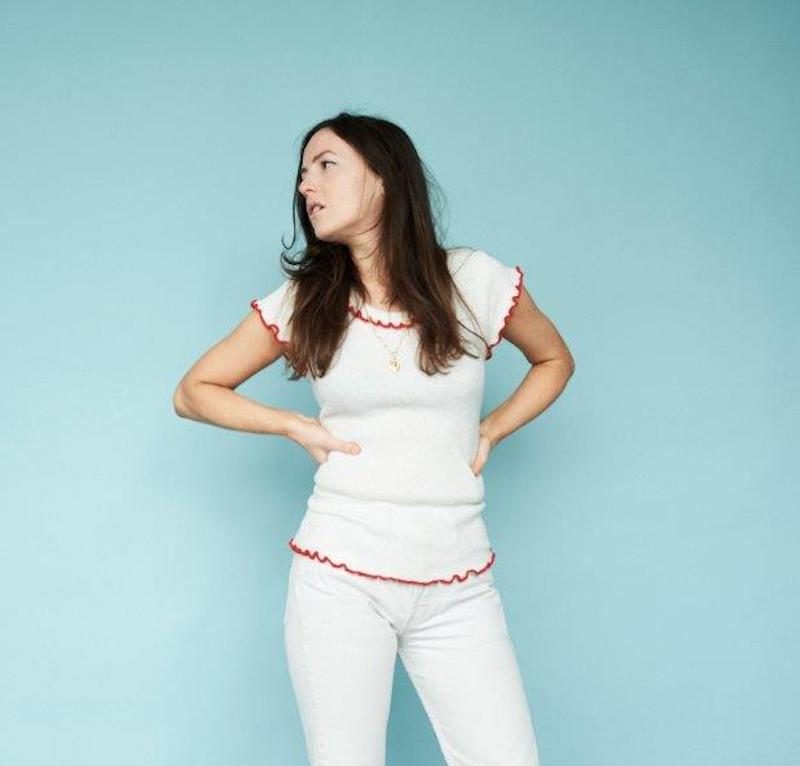DIVA speaks to comedian Phoebe Walsh about stand up, Twitter and fluid sexualities
On phoning Phoebe, she confesses she’s sitting in a cafe trying to work but is instead, “staring into space and going on Facebook every five minutes”. Walsh, recently returned from Edinburgh Fringe, is preparing to travel to New York and LA where she’s due to make her stateside debut. She’s also writing her new material, albeit to the inner jibes of, “Get off Instagram, you stupid idiot.”
DIVA: Hello Phoebe, for someone who hasn’t seen you perform, can you tell us a little more about your comedy?
PHOEBE WALSH: I find it hard to define my comedy but it’s sort of – and this sounds very grandiose – about how life is a struggle. While at the same time, it’s also very specific to millennials and the issues that we face, like technology, like not being able to own our own homes and being in a state of limbo. It doesn’t sound very funny does it?
So would you say your comedy is based on your own experiences?
My biggest inspirations are my best friends, we chat through every nuance that happens in our lives. There’s always lots of things happening with them, and then I just sit and listen and think hmmm, that’s funny, that’s interesting, I’ll take that. They’re also the people who persuaded me to start doing comedy by myself. I used to be in a sketch group called Oyster Eyes, and that was really different to the stuff I do now, more character-based and quite surreal. When I stopped doing that, I was too scared to do live stuff, but they gave me the confidence to do stand up and to talk about the stuff we weren't seeing talked about.
Do you think it’s important to talk about the millennial experience?
In a recent interview with the Guardian, I said the internet is ‘like the elephant in every room'. It’s something you only talk about with your best friend or maybe with someone you’re dating. There are so many weird rules and regulations when it comes to the internet and they’re all really embarrassing and lame. You don’t want to be like, “Oh, he hasn’t liked my Tweet”, but things like that do matter to people more and more. It’s embarrassing to talk about how much you’re on your phone, but everybody is. What’s interesting is the dissonance between how we actually are and how we want to be perceived. I find it fascinating, for instance, when someone puts up a selfie and then tries to justify it with a funny joke. It’s clear the photo came first and then they’ve sat for 45 mins and brain stormed a tagline.
In previous interviews you’ve said that you "split the audience", how so?
It’s definitely an age thing. When I would see older people coming in to watch my show in Edinburgh, I almost wanted to be like, “Honestly, you’re going to hate this!” Older people – generally – just don’t get it. It’s a generational thing, one which often women can relate to more. Either that or, you know, just cool woke people get it. [Laughing]
You’ve recently spoken out about your sexuality, does that come into your comedy?
Yeah, I talk about being bi in my show. I’d say that my stance on sexuality is that, if you’re not somewhere on the spectrum, then I just think you’re a bit basic. That’s the running joke in the show, and I think it’s nice to turn that on it’s head.
Do you think that’s another generational thing? Being aware of more fluid sexualities?
Yeah, definitely. I think the idea of coming out is old-fashioned and a little draconian. Not for everyone, but for me. I don’t believe that if you’re not 100% straight you have to tap your mum on the shoulder and be like, “I don’t like a dick in my mouth all the time, mum.” I find things like that a bit alienating, but similarly, it’s so about the person. I weirdly think my sexuality, the way I would describe it, is that I’m actually just really fussy and I think the universe has been like, "‘Cause you’re so fussy you can have both options to open it up”. In short, if someone’s fit and funny and lovely, then it doesn’t matter. Some of the best comedy I think there is comes from queer voices because they’ve often not been heard yet. My favourite comedians are Phil Dunning and Nick Coyle, queer guys that are amazing. We’ve seen so many straight, white stand ups that it’s refreshing.
Has your sexuality ever affected your career in any way?
Once I was having my photograph taken and the photographer knew that I was bi and he was like will you hold this magazine, like Nuts or something, and I was like… “Um, no!?”. But besides that, I don’t think so. I wonder though, because I’ve only really talked about it this year, that perhaps that might change. I’ve still got to contend with labels.
How do you feel about #BiVisibiltyDay which took place earlier this week?
I think it’s only a good thing. The more we get to know about different sexualities, the more society understands and realises that sexuality is fluid and is often not as black and white as people think. I also think it’s good to highlight within the gay community, you know. It’s hard to know where you belong in terms of LGBT communities even. I should say something better there, shouldn’t I..?
Anything else?
I mean nothing really, that’s me. I have no more layers. [Laughing].
You can catch Phoebe Walsh on 18 October at The Glory, London. Follow her on Twitter at @phoebewalsh_.
Only reading DIVA online? You're missing out. For more news, reviews and commentary, check out the latest issue. It's pretty badass, if we do say so ourselves.
divadigital.co.uk // divadirect.co.uk
